Photographs: Juan Medina/Reuters. Deepak Lal
After being hailed as Masters of the Universe for the last two decades, western bankers are now being blamed for the global financial crisis and being branded as the ugly face of capitalism.
Their massive earnings are decried as the embodiment of the greed that critics of market capitalism have always claimed it promoted.
So what has grown wrong, and are these complaints a sign of the failings of capitalism or the result of "rent seeking" induced by public policy?
What, if any, are the remedies? These are the questions addressed in this and my next column. Here is undoubtedly a systemic problem in the western banking system as it has evolved over the last two centuries.
...
Why western bankers are blamed for the financial crisis
Photographs: Ognen Teofilovski/Reuters.
Banks have come to take on too much risk, whose costs have been socialised whilst the returns have accrued to bank shareholders and managers.
In his brilliant 2011 Wincott lecture, Andrew Haldane, executive director for financial stability at the Bank of England ("Control rights [and wrongs]", Economic Affairs, June 2012), has documented this evolution and its consequences for British (and mutatis mutandis for US) banking. It is a terrifying story.
Till the mid-1800s, British banking consisted of 500 unlimited partnership banks and 700 mutually owned building societies.
Managers monitored shareholders (as they vetted share transfers, excluding owners without sufficiently deep pockets to bear the risk), and shareholders, managers. This same pattern existed in the US and most of Europe.
...
Why western bankers are blamed for the financial crisis
Image: Josefina Florian Mendez (front R) is embraced by a supporter after she was evicted from her apartment in Madrid. Florian Mendez, an immigrant from the Dominican Republic, said she could not make her mortgage payments after losing her job.Photographs: Juan Medina/Reuters.
Gradually, unlimited liability partnerships were replaced by limited-liability joint stock companies.
But some of the benefits of unlimited liability were maintained: through shareholding-vetting remaining in bank deeds; the banks introduction of a form of contingent capital in extended liability and reserve liability (whereby shareholders were liable for additional capital in the case of bankruptcy); and a pool of uncalled capital that could be tapped by managers before insolvency.
But with the consolidation of banks in the late 19th century (falling to 70 in 1913 from 600 in 1825), it became impractical to vet shareholders.
Moreover, calling on capital in a crisis accentuated banking panics, and extended liability was soon seen as ineffective in dealing with bank failures, and by the end of the 1930s only six UK banks were left with reserve liability.
...
Why western bankers are blamed for the financial crisis
Image: A civil service worker holds up a placard depicting a parody of Spain's Prime Minister Mariano Rajoy during a protest over government austerity measures.Photographs: Paul Hanna/Reuters.
In the US too, during the Great Depression, extended liability could not protect depositors in failing banks, and Federal deposit insurance was introduced in 1934.
But, to limit the "moral hazard" created by deposit insurance, the accompanying Glass-Steagall Act separated the public utility (commercial banking) part of the banking system from the gambling investment banking part (which is also needed in a dynamic economy).
For, if the financial safety net provided by deposit insurance also covered investment banking, the gamblers would always win: keeping their gains when they win, and passing losses to taxpayers when they lose.
...
Why western bankers are blamed for the financial crisis
Image: Two people sleep outside a closed down business in Madrid.Photographs: Susana Vera/Reuters.
By the 1930s, widely dispersed, unvetted and anonymous shareholders became bank owners - with unlimited upside payoffs but downside risks capped by limited liability.
In the 1990s (with the abolition of the Glass-Steagall Act and financial liberalisation in the UK), the global investment banks that had continued to be private partnerships also became limited-liability public companies, as did many of the mutually owned building societies.
What were the consequences? With the capping of downside risk, there is an incentive for banks to raise the volatility of returns.
With volatility increasing the upside return without affecting the downside risk, "joint stock banking with limited liability puts ownership in the hands of a volatility junkie". Mr Haldane finds asset returns were two and a half times more volatile at the end of the 20th century than at the beginning.
...
Why western bankers are blamed for the financial crisis
Image: Empty shelves are pictured during the last day of the closing down sale at a Schlecker drugstore in Munich.Photographs: Michaela Rehle/Reuters.
The second method to boost returns on equity is leveraging (taking on more debt), which has been further promoted by debt interest, but not equity finance, being deductible from taxes on corporate profits.
Nor have debt holders put any restraint on "risk-hungry, rent-seeking" shareholders. For, in a crisis it has become clear to creditors that debt holders will not be penalised for fear of making the crisis worse.
So even if the authorities pre-commit to only bailing out depositors at commercial banks in a crisis, in practice they will extend the financial safety net to virtually every financial institution when the crisis occurs. In economist's jargon, there is a "time consistency" problem.
...
Why western bankers are blamed for the financial crisis
Image: A bank employee counts one hundred dollar notes at a bank in Seoul.Photographs: Lee Jae Won/Reuters.
These time consistency problems have become worse with the emergence of large banks that are "too big to fail" (TBTF).
Because of the interconnections in the global financial system, the authorities have feared letting a TBFT go to the wall. So they have extended the financial safety net to any TBFT institution.
This leads to the TBFT not pricing tail risk, and thereby receiving an implicit state subsidy. For the UK banks, Mr Haldane estimates, it is at least tens of billions of pounds per year, and for the global banks, at least hundreds of billions of dollars per year.
Who are the beneficiaries of these subsidies?
...
Why western bankers are blamed for the financial crisis
Photographs: Vivek Prakash/Reuters.
Creditors do not benefit, as they get a lower return than if they were expected to bear losses. Long-term shareholders do not benefit: symmetrically gaining and losing with rising and falling returns.
It is short-run equity traders, who win on both the upswings (when long) and the downswings (when short) - if their timing is right.
The average duration of holdings of bank shares in both the US and the UK have fallen from "around three years in 1998 to around three months by 2008".
...
Why western bankers are blamed for the financial crisis
Photographs: Shannon Stapleton/Reuters.
Moreover, since the 1990s the rate of return on equity is used as a measure of managerial performance and remuneration, which encourages them to raise equity returns through boosting asset volatility and increasing leverage.
Thus, whilst the risks of banking have been socialised, the returns have accrued to bank shareholders (who account on average for only five per cent of bank's balance sheets) and managers.
These rewards have been enormous. In 1989, the CEOs of the seven largest US banks earned on average $2.8 million, about 100 times the median US household income. By 2007 they earned ten times more, $26 million - over 500 times the median US household income!
Why western bankers are blamed for the financial crisis
Photographs: Toru Hanai/Reuters.
After two centuries, Mr Haldane concludes, ownership and control of banks have been reunited. They now rest with short-term traders in equity and managers, who have no interest in the long-run health of their banks or the economy.
But this has been largely due to the extension of the public financial safety net to virtually the whole of the western banking system.
It is no intrinsic feature of capitalism, but public policy that has led to this socialisation of the costs and privatisation of the gains from excessive risk-taking in banking that's currently being decried.

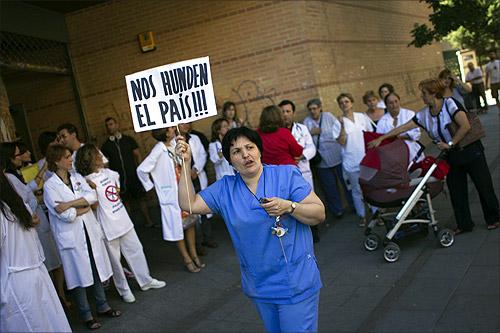



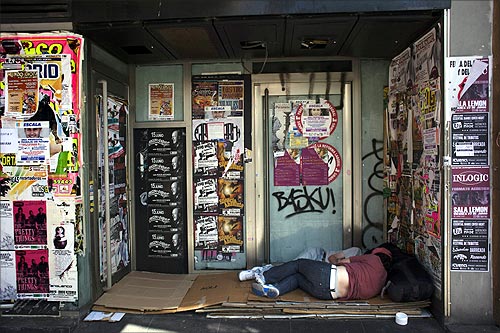

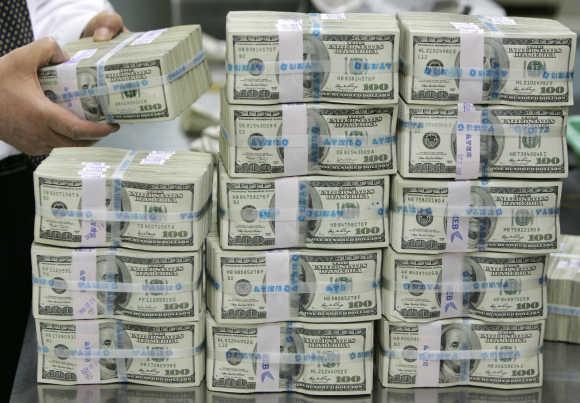
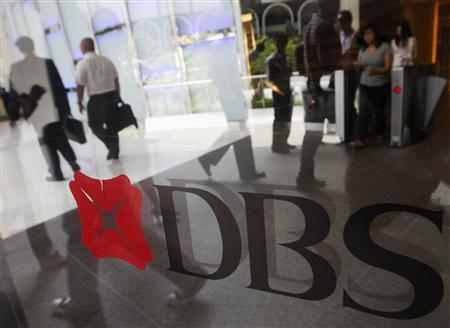
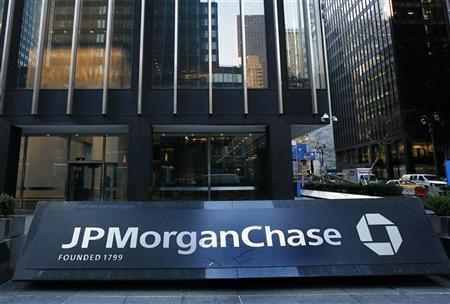


article